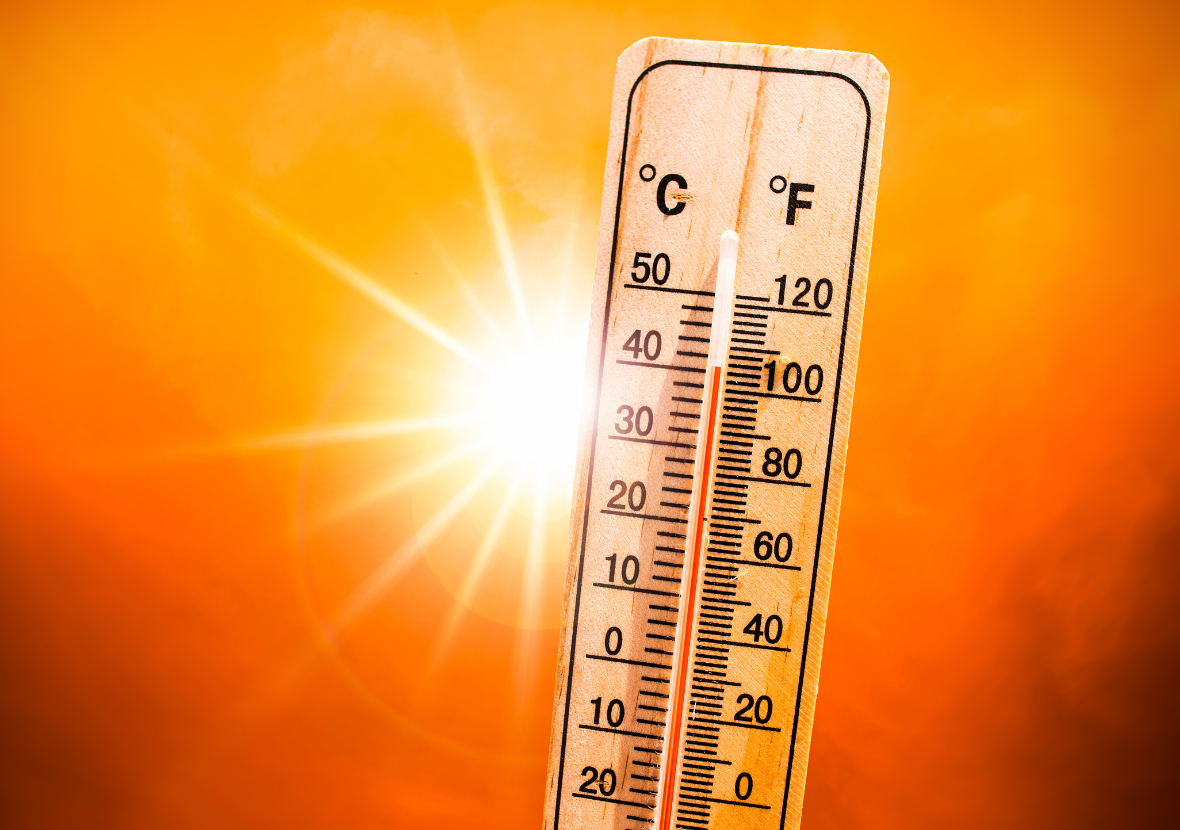As we approach the peak of the current UK heatwave, heat illness should be a primary health and safety consideration for anyone taking part in outdoor training/exercises. With the global climate crisis causing temperatures to rise, it is important to be aware of heat illness symptoms and potential consequences.
What is heat illness?
There are different kinds of heat illness, including heat stroke, heat exhaustion and heat cramps. Without preventative measures, heat illness can escalate quickly and be life-threatening. Symptoms of heat illness include:-
- Headache
- Nausea and loss of appetite
- Dizziness and confusion
- Excessive sweating and pale
- Clammy skin
- Cramps in arms, legs and stomach
- Being very thirsty
- Fast breathing or pulse
- A high temperature.
If a person suffering from heat illness is not cooled down, symptoms can rapidly escalate and can lead to severe injuries such as brain injury and organ failure.
Also, serious injuries can occur when suffering the effects of the heat resulting from accidents such as falls or losing control of a vehicle or machine.
Certain workers at risk of heat illness include outdoor workers and those in warm indoor environments such as factories and construction sites. In the context of our military clients, those serving in hot climates or on exercises/training/promotional courses in warm weather are particularly at risk.
It’s very important that your employer takes heat illness seriously and has robust risk assessments in place to keep you safe in the warm weather. That’s true whether your employer operates in the private sector or public service such as the Ministry of Defence.
When can a claim arise?
If you’ve suffered injury as a result of heat illness at work, your employer may be liable to pay compensation if certain measures have not been taken. Such measures include
- Regular access to water
- Breaks to cool down
- Opportunity to acclimatize
- Adaptations to your role to limit time in the heat or to reduce the demands of the job.
Medical planning should form part of your employers’ risk assessment to ensure that you receive medical care as quickly as possible should you develop heat illness.
If you’re going to be working in a warm environment, your employer should also provide appropriate training as to how to recognise and/or prevent the symptoms of heat illness.
For those in military service, this would include health and safety training, ongoing updates and recap training, and briefings before the particular exercise/course you’re about to partake in.
An entirely avoidable example of the dangers of warm weather and a lack of preventative measures to combat it is the tragic events that occurred during the SAS selection in the Brecon Beacons in 2013. Three highly fit and driven recruits tragically and needlessly died due to heat stroke/organ failure on a 16-mile exercise on the hottest day of the year. The Coroners Inquest into these deaths identified that the failures of the Ministry of Defence included:
- Lack of training regarding heat illness
- Lack of guidance in respect of heat illness for endurance events
- Inadequate risk assessment and delays in providing effective medical treatment.
The Army’s GPS tracking system was also found to be inadequate and did not properly identify when the recruits were stationary.
Despite awareness of the risks and their own JSP guidance regarding heat illness or cold injury, we still see claims in which personnel have suffered climatic injury in the course of their service.
If you have suffered heat illness at work or in service and you believe the MOD or your employer may have failed to adequately protect you, get in touch with our specialist lawyers who can advise you regarding making a claim.
To contact us, call us on 0161 930 5151, email us at enquiries@gorvins.com or use our online enquiry form.

